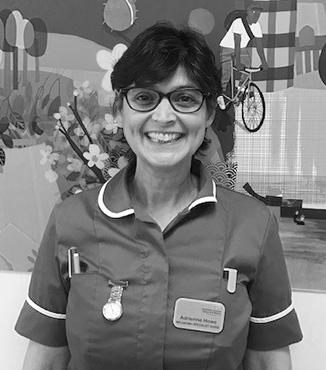
Adrienne Howe - Melanoma Clinical Nurse Specialist (CNS), Bristol Haematology and Oncology Hospital
I genuinely enjoy coming to work. There is never a day when I have to force myself out of bed.
I know that what I do is helpful to patients and I sleep well at night knowing that I have done my best for them.
Being a CNS gives me the opportunity to focus on a discrete group of patients and we get to know them really well.
We know about their families, their pets, their hobbies, where they go on holiday… no aspect of their lives go unnoticed.
They are reliant on us and when they are desperate and no one else will pick up the phone they know that they can come to us to help them problem solve
No two days are the same. One day I can be trying to get a seriously unwell patient into hospital and the next I can be helping a patient get a grant to pay their bills.
The team I work with are phenomenal. They are so generous in sharing their knowledge, time and skills and this approach ensures that our patients receive the best possible care.
It is the best job. If you want to have a level of autonomy in your work and provide care that is patient centered, then the CNS role is for you.
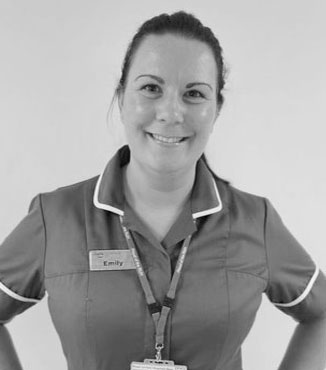
Emily Moretti - Gynaecology Oncology Clinical Nurse Specialist (CNS), Royal United Hospitals (RUH) Bath NHS Foundation Trust
Hello my name is Emily, and I am a Gynaecological Cancer Nurse Specialist.
Caring for women diagnosed with gynaecological cancer is a passion of mine. I love my work as a CNS as we are the constant throughout the patient’s treatment. It is both vital and invaluable for emotional wellbeing and mental health to build a knowledge of a patient’s specific care needs. We are trusted with the finite details of a patient and their family’s lives, which makes being a CNS great as we get to know them really well on a personable level.
We are the continuity of care across the pathway, which patients have fed back is so important. Patients feel reassured that they can pick up the phone or send an email and have a point of contact directly to us. It is a privilege to care for women during their most difficult time and also being able to relate to them as a mother, wife, daughter and sister.
I would undoubtedly recommend nurses to become a CNS as it is a hugely rewarding and satisfying role. You are an expert in your clinical field and have the ability to deal with emotionally difficult and challenging situations. You work closely as part of a team to provide the high standards of care and support for patients at a pivotal moment in their life.
It is the best job!
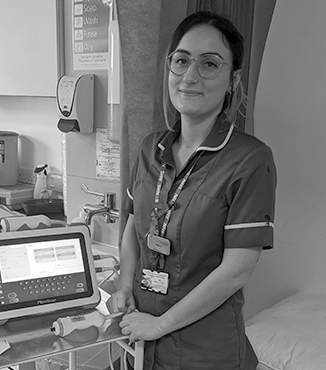
Sally Tilden - Liver Outreach Clinical Nurse Specialist (CNS), University Hospitals Bristol and Weston (UHBW)
I qualified as nurse in 2017 and started my first job as a staff nurse on the hepatology ward in the BRI. I was working in an amazingly supportive team and it didn't take long for me to realise that hepatology was where my heart was at. After 4 busy years, I applied for the 'Alright my Liver' community outreach CNS role. At first, I found working independently so nerve wracking, but have learnt to love being more autonomous in my practice. I love being out and about, raising awareness for liver disease and screening patients. Some of the patients we look after are heavily stigmatised, lead quite chaotic lives and in turn have worse health outcomes. These people are often most in need of a nursing advocate and I do my best to make sure I fulfil this role by being flexible and non-judgemental in my approach. Working as a CNS opens up so many opportunities for professional development, I feel so lucky to be in this role.
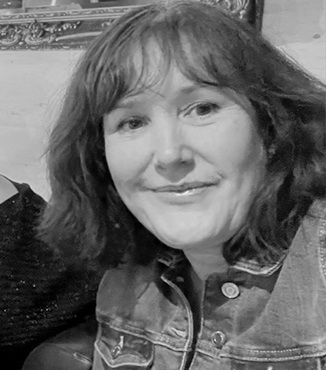
Sarah John - Colorectal Clinical Nurse Specialist (CNS), North Bristol Trust (NBT)
As a CNS of 20 years, I guess you can say I enjoy my job! I am a colorectal CNS and more recently have been working with the South West Genomic Service Alliance (SWGMSA) as one of the Lynch CNS, working on the Lynch patient pathway.
My role allows me to work autonomously with the patient and their family at the centre of what I do, informing and supporting patients through every step of their treatment and follow up. The role I have with the SWGMSA means I can look at the pathway for patients with Lynch syndrome to ensure the patient is at the forefront. Genomics is changing patient care and I am excited to be able to implement these changes within the South west.
Gaining experience is key to becoming a CNS, as well as developing communication skills and knowledge.
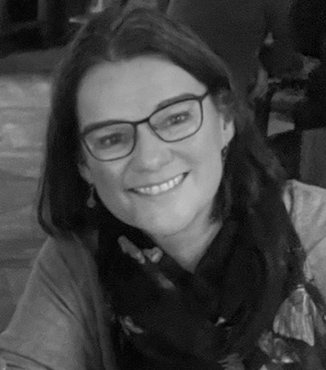
Siobhan John - Lynch Syndrome Clinical Pathway Nurse Facilitator, South West Genomic Medicine Service Alliance
It is 25 years since my first CNS role as a stoma nurse; since then I have spent many years as a colorectal nurse specialist, more recently taking on a new genomics role as a Lynch Syndrome specialist nurse.
In each CNS role I become a specialist in my own little niche, a ‘go to’ for advice and font of knowledge, quickly gaining the respect of other colleagues and feeling that my opinion is valued.
Education is a key part of my role, both to my patients and other professionals. I also love having the opportunities to develop my own knowledge and expertise to be better able to support my patients and be their advocate.
Each day is different, I have the freedom to work autonomously and manage my own workload, but also be part of a close knit team to bounce ideas off.
As a CNS I feel privileged to have more time to really support my patients on a one to one basis, whether that is face to face or by telephone, compared to when I was a ward based nurse. I get to know my patients really well as I remain in touch as they travel along their journey and feel privileged to be in a role where I still use the basic core skills of nursing.
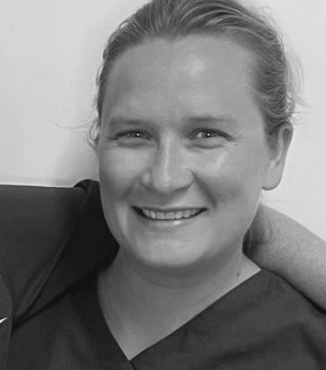
Olivia Rabjohns – Lung Cancer Clinical Nurse Specialist (CNS)
What gets you up in the morning – I love that no day in my job is the same! Each day is a different type of clinic, or my job responsibilities are different. It keeps me excited to come into work and I am constantly learning or in new situations that widen my experience. I also think lung cancer patients are the best people to work with!
Why do you like being a CNS – I love being a CNS within lung cancer because I am passionate about improving the service/experience these patients receive after diagnosis and throughout their lives. I have always had an interest in lung cancer, and I get so many opportunities within my role to advance my knowledge and clinical skills. Our patients feel comforted that we are just a phone call away with specialist advice and it is a privilege to be able to support people during the most difficult times in their lives. My team and I go home every day knowing we have helped somebody and delivered a quality service. We are very much a nurse led service and this makes us proud of what we have achieved!
Top tips for anyone thinking about becoming a CNS – For me it was key to gain lots of general experience within nursing first! I worked in ED for around 7 years. I also did a secondment within acute oncology, and this was a great stepping stone before applying to be a Lung Cancer CNS! If you want to work autonomously and have opportunities to expand and improve patient care/services, then this is the job for you!
Or anything else about you and your role – One of the best things about being a CNS is you are a specialist within your role, and this means you have extensive knowledge and advanced skills within your speciality!
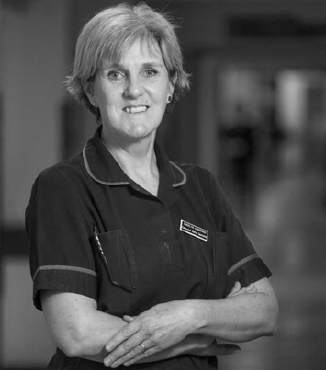
Carolyn Cummings – Colorectal Clinical Nurse Specialist (CNS)
I grew up in Oxfordshire and that is where my nursing career started 43yrs ago. I eventually married and settled in Cheltenham having 3 wonderful children. My career has been varied and interesting working both in primary and secondary care before settling into what I think has been the most exciting role of my career a colorectal nurse specialist in 2006 to date. This role offers a unique blend of advanced training but core values of compassionate nursing care. it is a privilege to be caring for individuals, their families and carers at one of the most challenging times they may come across. This role enables you to witness and be part of the inner most struggles and emotions a diagnosis of cancer can bring. I have real empathy having witnessed my mother have 3 separate diagnosis of cancer and going through treatment with courage and dignity. This was made all the more bearable with a wonderful team looking after her. I strive every day to treat our amazing patients with the same dedicated compassion my mother was treated with.
I work with a great team who make me laugh every day and even after all these years I find myself looking forward to another day at work. I would definitely recommend anyone thinking of specialising in a subject they are passionate about. Being a specialist nurse is interesting, challenging and very rewarding, there are many training opportunities with advanced roles such as prescribing and the physical assessment and clinical reasoning for practice course.
I think some of my greatest achievements apart from my family are completing a tandem sky dive to raise money for a cancer charity and the hospital despite a fear of flying, being nominated and winning a patient choice award in the staff awards in 2016 and helping to develop the very first patient recall system for patients in surveillance in our service.
If anyone asked what I would change in my nursing career if I could do it all again the answer would simply be nothing, I would do it all again in a heartbeat.
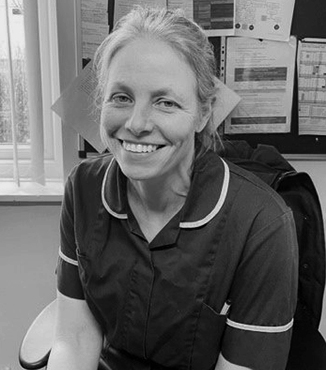
Sarah Levy - Head and Neck, Brain and Sarcoma Clinical Nurse Specialist (CNS), Yeovil District Hospital
As a CNS I feel a huge sense of purpose. I recognise that this role makes a difference, so I have a sense of that and it is rewarding to know that my colleagues and I have done something well collectively.
Often when people first get diagnosed with one of these cancers, they are with a team of people at a district general hospital who are unfamiliar with how to support these patients. From the very start of somebody getting a cancer diagnosis, there's a great need for support with expertise along the way.
I want to grow in this role, continue to develop it and take it further across the county. The key to this is hearing from patients about what they feel the gaps are and how they feel we can deliver better care.
Last year I was nominated for a Macmillan Excellence Award for commendable work at Yeovil.
